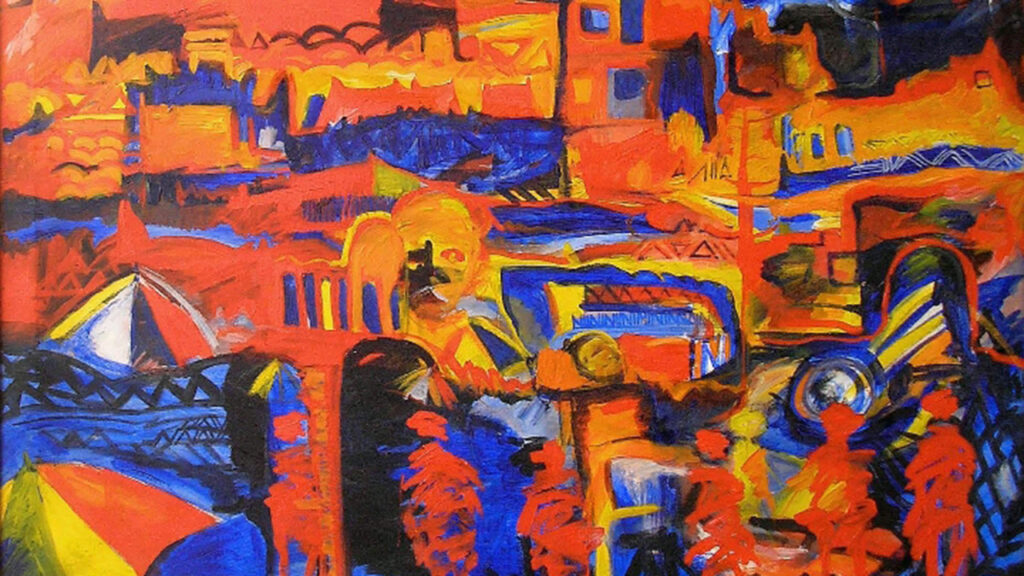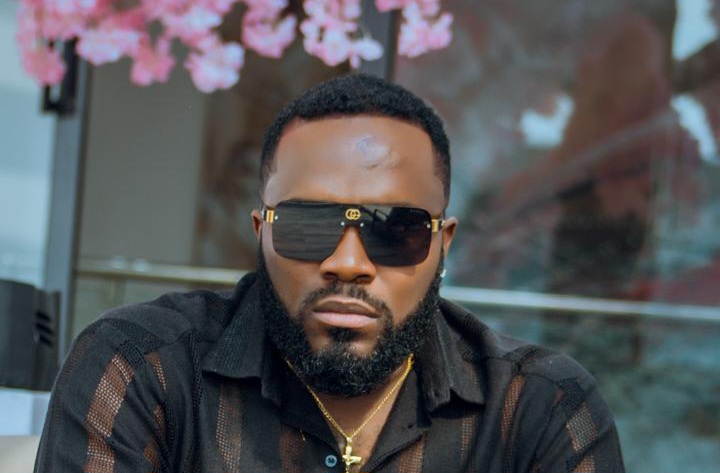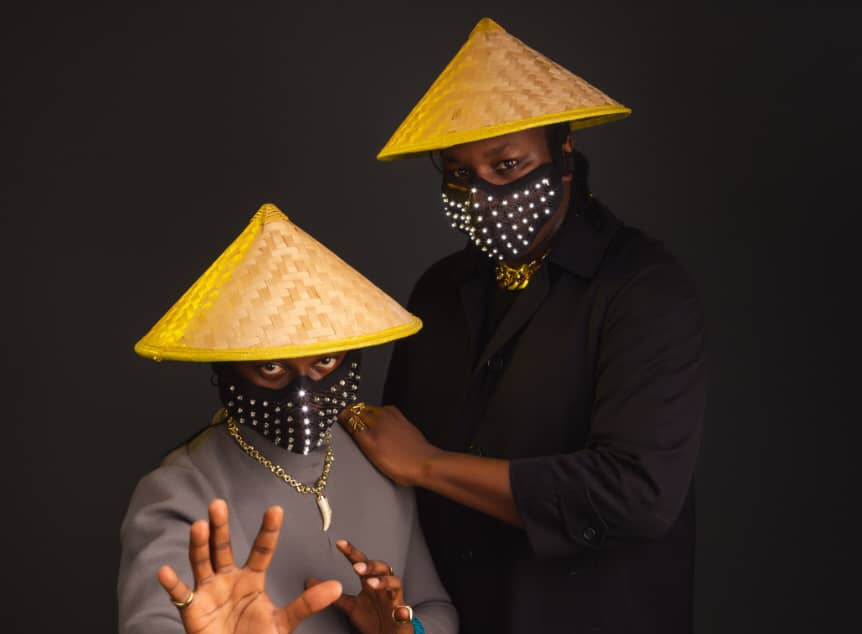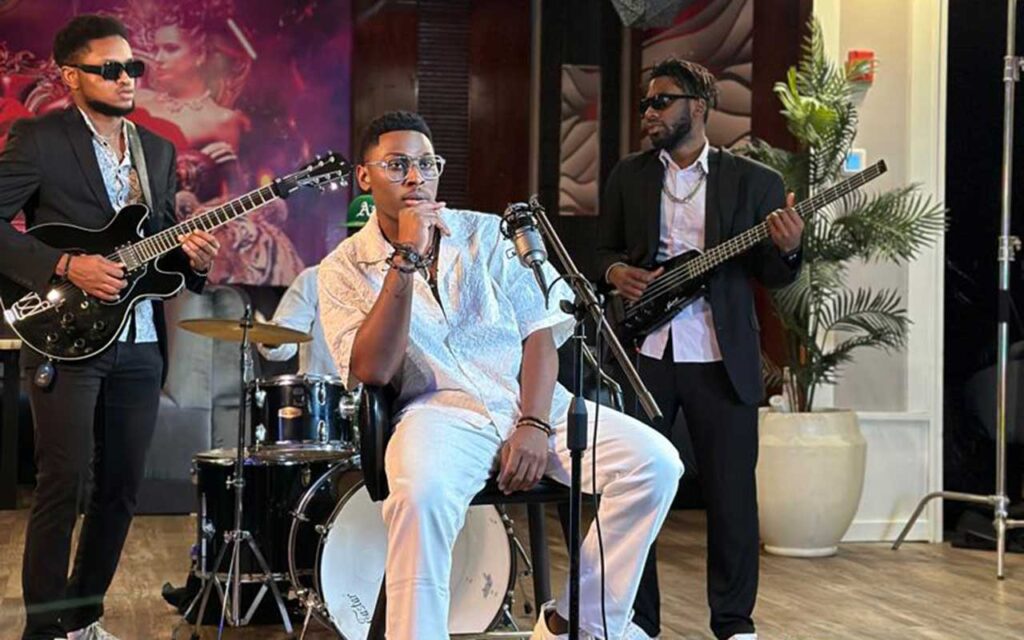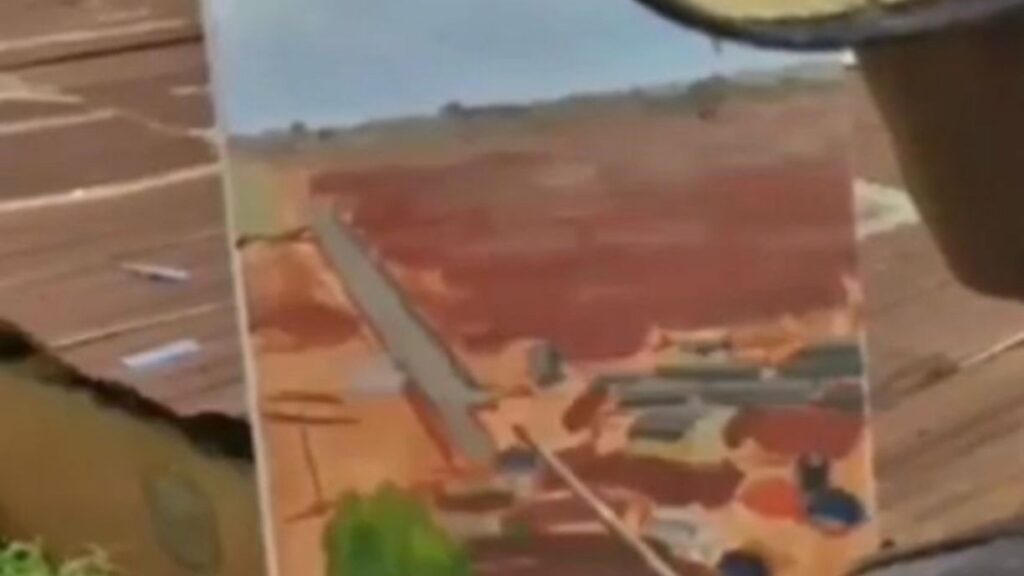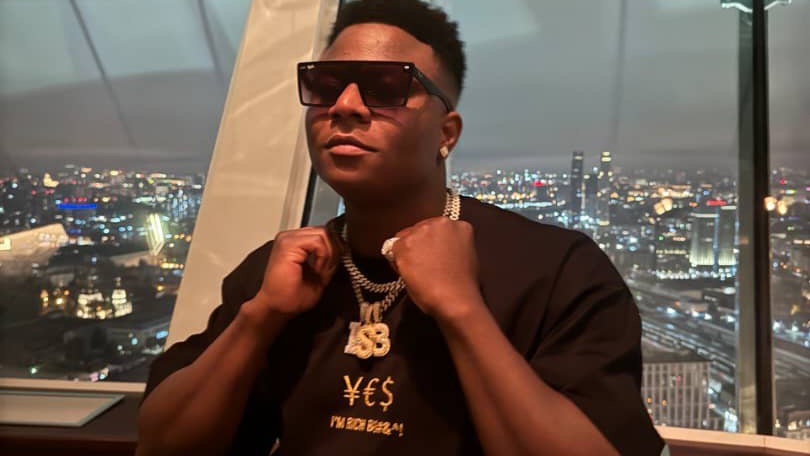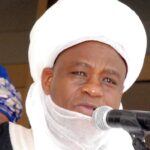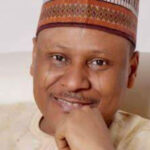Though ‘Northern Nigerian’ motifs and artefacts have been greatly represented in Nigerian Arts, it certainly hasn’t been easy accessing the rich arts and cultures of that region. In fact, in 1958, one of Nigeria’s most definitive art movements, the Zaria Art Society, began in Zaria, one of the biggest and historical towns in Northern Nigeria.
The works of artists from Northern Nigeria have been lacking in mainstream representation. This underrepresentation and lack of visibility has left a void in the study, research and engagement of works from this region, alongside the evolution of artistic practices, the declines and resurgences and the contributions of the artists in this region to a holistic experience of the Nigerian artistic landscape.
Over the years, many artists from the region have drawn inspiration from events and images such as the Durbars, Fulani Milk Maidens, Hausa embroideries, Gbagyi images and symbols, Tiv culture, Nupe bronze works and other numerous and diverse tapestry of minority cultures in their richest presentations.
However, the Yemisi Shyllon Museum of Art of Pan-Atlantic University is set to break the hoodoo with a new show titled, AREWA?, curated by Aisha Aliyu-Bima. The show, which will be on till October, opens to the public on Tuesday, July 9, 2024.
Arewa is the Hausa word used to describe Northern Nigeria and its peoples. Among the millions of people that live in this geopolitical region, the term holds a myriad of meanings. But of much importance is the region’s rich diversity of cultures, ideas, representations and voices.
“Bringing together a cross section of generations of artists, as well as a variety of artistic expressions in medium, subjects, techniques, styles and identities, AREWA? Presents a deep and ambitious tour of Northern Nigeria, the first of its kind in recent time,” explains the show’s curator.
“The exhibition looks at its modern history, its evolving physical and socio-cultural landscape, fascinating variety of identities and its place in the larger Nigerian and African discourse of modern and contemporary art.
“This exhibition hopes to educate and encourage viewers who might not be exposed to Northern
Nigeria to engage with the region, learn about its subtleties beyond often parroted cliches and stereotypes. The project will attempt to explore a variety of cultures and identities, from the most popular Hausa-Fulani culture, to the smaller, lesser known cultures that exist alongside it, challenging prevailing preconceptions of Northern Nigeria as a monolith and showing that Arewa is a more diverse and multi-layered region made up of over 150 ethnic nationalities, engaging and interacting with each other in a constant push and pull synergy.”
The exhibition showcases the artistic and cultural diversity of Northern Nigeria, celebrating and highlighting the invaluable contributions of its artists to the wider Nigerian arts scene. It interrogates the creativity and innovation of Northern Nigeria.
The Shyllon museum is partnering with Africa No Filter to execute the two-part project titled, Dismantling Stereotypes, Building Links.
This project will feature an art exhibition, titled, AREWA?, alongside complementary programmes aimed at presenting a nuanced tour of Northern Nigeria, its evolving physical and socio-cultural landscape and identities.
The exhibition seeks to amplify the voices and creative expressions of artists from Nigeria’s northern region by providing them with increased visibility, recognition and opportunities for collaboration and growth.
This project is part of efforts to challenge negative and harmful stereotypes about Africa by perpetuating more nuanced and balanced narratives about the continent.
AREWA? uses the storytelling power of art to shine a spotlight on Northern Nigeria, a region that is largely misunderstood and misrepresented. Through the complementary programmes, YSMA aims to establish lasting networks and alliances that will contribute to the advancement of Nigerian art and culture, challenging stereotypes and harmful narratives and replacing them with more balanced and nuanced representation.
The show consists of works by about 40 artists including Jerry Buhari, Jimoh Akolo, Fati Abubakar, Williams Chechet, Aisha Augie, Blaise Gundu Gbaden, Imran Tilde, Dhlimi Munza, Tonie Okpe, Kaltume Gana, Abdulrazaq Ahmed, Ahmad Abdullahi (Almajiri), Alhamdu Andrew Yila, Bara Sketchbook and Ben Ibebe, among others.
Commenting on the show, the curator, Bima, said: “It is a privilege to put together this exhibition that explores the stories and practice of contemporary artistic practitioners from the North. It invites viewers to look deeply into the works, and I think they will find many points of commonality and wonderful stories. While this exhibit focuses on Northern Nigeria, it also seeks to create more pipelines between the art practitioners in the North and the mainstream art space in Nigeria, Africa and beyond; and to bring important issues like cultural preservation in an ever-evolving world to the fore.”
Manager of the Shyllon Museum, Michael Oseghale, added, “with the support of Africa No Filter, we are glad to show AREWA? to our audiences, especially in our nation’s current socio-cultural climate. The YSMA seeks to advance knowledge about a diverse range of topics through art, and with AREWA?, we are not only able to contribute to learning, but also to nation-building. These opportunities to positively impact the society we are situated in are what justify our mission as a museum.”
With about 80 artworks in the exhibition lineup, this showcase will bring together generations of artists, as well as a variety of subjects and identities, with the goal of engaging viewers beyond perpetuated stereotypes and cliched narratives about Northern Nigeria.
To extend its impact, the exhibition will be complemented with workshops for curators, journalists and teachers, featuring panel discussions on the role of art in challenging stereotypes, and the future of arts in Northern Nigeria, as well as advocacy training sessions on better representation. A comprehensive exhibition catalogue including essays on key issues surrounding the arts and culture in Northern Nigeria will also be published.
AREWA? is made possible by the grant awarded to the museum by Africa No Filter, an
organisation that supports the development of nuanced and contemporary stories that shift stereotypical and harmful narratives within and about Africa
Arts and Culture Programme Officer at Africa No Filter, François Bouda, said: “The project will empower changemakers such as curators, journalists, and teachers, whose work is crucial in shaping public opinion and narratives.”
Advancement Officer at YSMA, Madonna Iloba, said: “The YSMA is interested in the advancement of Nigerian arts, and for us it is important to form collaborations that can further this goal. We are grateful to have the support of Africa No Filter for the execution of this important project. Of course, we want everyone to experience AREWA?, and so our strategy is to engage groups with the potential to influence their respective fields and reach even broader audiences. This is why, in addition to the exhibition itself, we have designed complementary programmes specifically for curators, journalists and teachers.”
“Our mission at Africa No Filter is to shift these stereotypes because they impact the way the world sees
Africa and how Africa sees itself. Through research, grant-making, community building and advocacy, we support storytellers to help shift the stereotypical narratives about Africa one story at a time. Our funders are Ford Foundation, Bloomberg, Mellon Foundation, Luminate, Open Society Foundations, Comic Relief, the Hilton Foundation, and Hewlett Foundation,” said Bouda.
The YSMA is the museum of the Pan-Atlantic University, established in 2019, with a mission to serve and engage diverse audiences by advancing knowledge about Nigerian art and by offering exhibitions and programmes that enable them to learn about art and through art.
The YSMA owes its initial collection of over 1,000 works to Prince Yemisi Shyllon, who also donated funds for the construction of the museum building and provides yearly grants for its upkeep and sustainability.
Through collaborative partnerships with private funders and strategic partners, we also provide opportunities for underserved groups to participate in arts and culture programmes.
At the YSMA, “we prioritise the learning experiences of our audiences through our collection and have carried out several initiatives aimed at telling our stories and enhancing inclusion and access to our arts and culture. Running for over two years, our programmes promote learning through Nigerian art, particularly for young people and consist of exhibition tours, class sessions and hands-on arts and craft activities that have engaged over 2000 young people between 10 and 25,” said Oseghale.
.

